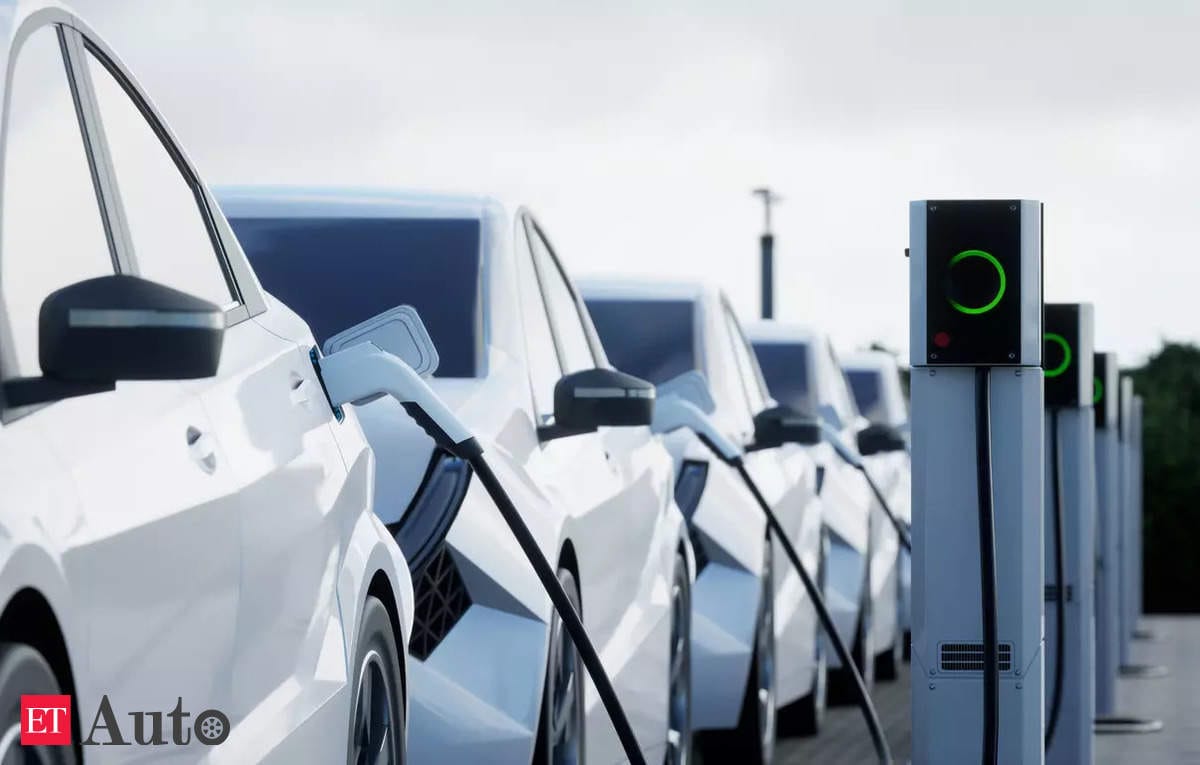To achieve net zero, ICCT bets on EVs, finds CNG worse than diesel - ET Auto

Source: ETAuto.com
New Delhi: With a collective aim of going emission free, the passenger vehicle (PV) industry in India is considering multiple fuel technologies including electric vehicles (EVs), hybrids, compressed natural gas (CNG), flex-fuels, amongst others. However, while these may be moving in the right direction, each of them may not be necessarily feasible in the long run, says research agency International Council on Clean Transportation (ICCT).
"If we have tohit a net zero target by 2070, our entire fleet of vehicles should be electric by 2045," said Amit Bhatt, Managing Director- India, ICCT, in an interaction with ETAuto, adding that a bulk of this will be battery electric vehicles (BEVs) and only a portion to be occupied by hydrogen fuel cells as the latter will be applicable for truck fleets, which constitutes for about 3% of motor vehicles.
"While it makes sense to not restrict ourselves to a single technology, having a level playing field for all the fuel technologies, developing the infrastructure and ecosystem for each of them is not practically feasible," he said.
A report by the government's think-tank NITI Aayog, in partnership with Rocky Mountain Initiative (RMI) India, analyzed that if FAME Phase-II and other measures are successful, India could realize EV sales penetration of 30% of private cars, 70% of commercial cars, 40% of buses and 80% of two and three- wheelers by 2030.
Bhatt believes that if we are able to achieve 30% EV penetration in cars, then 100% by 2045 should not be a problem. However, looking at the current scenario, achieving the initial target is "an ambitious task". Passenger cars have been the slow movers demonstrating the lowest penetration across all categories, however it doubled in FY24, rising to 2.3% from 1.3% in FY23.
The overall EV penetration in the country in FY24 stood at 6.8%, as against 5.3% in FY23. This was backed by total EV registrations surpassing 1.6 million in FY24, higher than 1.1 million in FY23. The electric three wheeler category demonstrated significant market penetration, followed by electric two wheelers.
To promote the sales of electric two and three- wheelers in the country with effect from April 1, 2024, the Centre replaced the FAME-II scheme with the Electric Mobility Promotion Scheme (EMPS), 2024.
According to Bhatt, the only deterrent for electrification is the high upfront cost and in the next two years, a massive reduction in battery prices is expected.
On Thursday, ICCT said the Ministry of Heavy Industries (MHI) has set up an EV taskforce in which it will lead matters related to electric trucks and supporting infrastructure. The taskforce has been set up in collaboration with the Federation of Indian Chambers of Commerce and Industry (FICCI), Society of Indian Automobile Manufacturers (SIAM), Confederation of Indian Industry (CII) and other agencies.
Talking about CNG as a fuel, Bhatt is not fully convinced about it being a clean fuel. He also noted that while bio CNG or biogas are theoretically carbon neutral fuels, India produces this in far less quantity than the total commercial requirement.
"Here, NOx is a secondary particulate matter. Earlier, CNG was a good option against diesel.Today we have a bunch of new fuel technologies available which are even better than CNG."
Surprisingly, as per one of ICCT's studies it has found that in terms of lifecycle emissions for passenger cars, "CNG is slightly worse than diesel".
"While CNG does have a lower particulate matter emission, if we take into account the methane leakage that happens upstream and downstream, then from a climate perspective, a CNG vehicle is in fact not good at all. The methane leakage has about 20 years of global warming potential," Bhatt said.
In line with keeping a check on Corporate Average Fuel Efficiency (CAFE) norms, a host of car makers have switched to CNG vehicles in their fleet. This includes Maruti Suzuki, Hyundai, Tata Motors and Toyota Kirloskar. Now, two and three wheeler maker Bajaj Auto is set to launch its CNG motorcycle next month. It is yet to be seen if CNG can garner a share in this segment.
